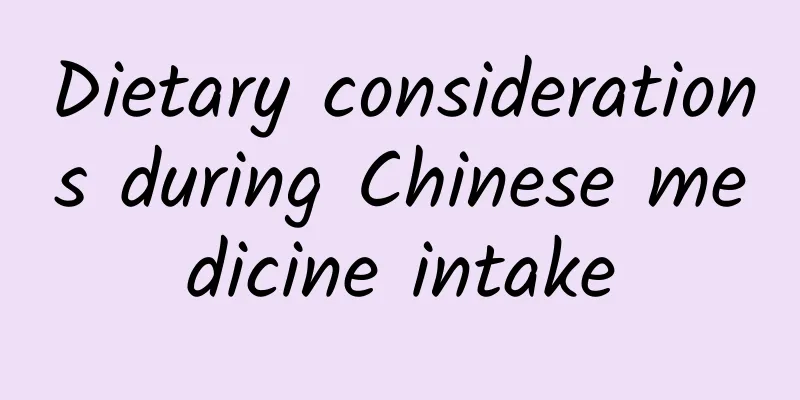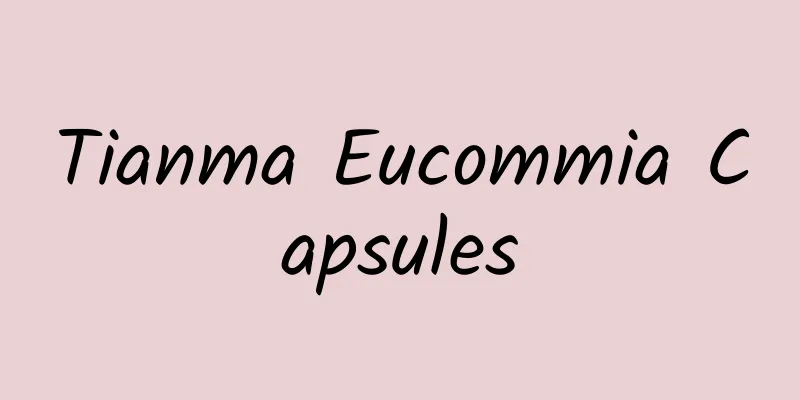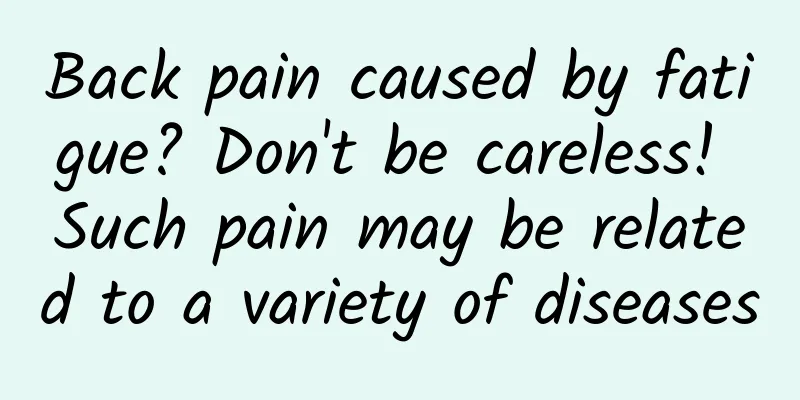Dietary considerations during Chinese medicine intake

|
As people in modern society pay more and more attention to traditional Chinese medicine, many friends have realized that taking traditional Chinese medicine can better cure our diseases and achieve a permanent effect. However, everyone also knows that traditional Chinese medicine also has many taboos of its own. So what are the dietary taboos during the period of taking traditional Chinese medicine? With this question raised by everyone, please join me in today's learning content. What can't you eat when taking Chinese medicine? 1. Greasy foods: This type of food includes animal fats and hard foods that are fried or deep-fried. Greasy food can damage the spleen and stomach, so it should be avoided by those suffering from external diseases, jaundice, and diarrhea. Fried foods are hard, hot and difficult to digest. People with gastrointestinal diseases or those suffering from "internal heat" should avoid eating them. 2. Fishy foods: These foods are mostly salty, cold and fishy, and contain foreign proteins, which can easily cause allergic reactions. Eating too much can damage the spleen and stomach and induce diseases. Therefore, people with spleen and stomach diseases should not eat too much, especially those with allergies. Such foods include yellow croaker, carp, hairtail, clam meat, shrimp, crab, etc., while carp, sardines, catfish, yellow croaker, crab and yellow mud snail are most likely to cause allergies. Fishy foods are also considered to be allergenic. 3. Sour and astringent foods: Too much acid will irritate the stomach and intestines, so patients with excessive stomach acid and gastrointestinal ulcers should avoid eating them. Those that are astringent mostly contain tannins. For example, tea contains tannins, and the content of strong tea is even higher. When taken together with Chinese herbal medicine, it can combine with certain proteins, alkalis, and heavy metal salts in the herbal medicine to produce precipitation, which will affect the absorption of the active ingredients of the medicine, and also affect the absorption of nutrients such as protein. Therefore, when taking Chinese herbal medicine, it is generally not advisable to take it with strong tea. 4. Raw and cold foods: These foods are mostly cold in nature, and their main function is to clear away heat and quench thirst, so they are suitable for heat-related diseases. However, it can easily affect gastrointestinal function, so it should be avoided by people with weak and cold constitution and patients with gastrointestinal diseases. For example, white radish is cold in nature and has the effects of digesting food, resolving phlegm, and regulating qi. If patients with weak constitutions or gastrointestinal diseases eat it, it will add to the cold and make their gastrointestinal function worse. In addition, when taking ginseng and other tonic medicines at the same time, due to their incompatible properties, the effectiveness of the tonic medicines can be reduced or eliminated, so radish and ginseng should not be taken together. The above paragraphs have given us a good introduction to the dietary taboos during the period of taking Chinese medicine. I sincerely hope that friends who have questions in this regard can study the above content carefully, so that they can avoid eating too much of these foods in their daily lives, thereby reducing the efficacy of the medicine and delaying the recovery time of our illness. Of course, what I want to tell you is that taking Chinese medicine to treat diseases is also a process that requires us to persist for a long time. |
<<: Is it good to eat white Poria cocos raw?
>>: What are the effects and side effects of Ginkgo biloba leaves?
Recommend
[Creative Cultivation Program] Geothermal Energy Exploitation: Digging deep into the earth to get thermal energy, is it reliable?
Author: Niu Mingmin Reviewed by: Zhang Yuxiu, Pro...
What are the medicinal values of thornwood seeds?
Thornberry seeds are very important. They can be ...
The best Chinese medicine for neurosis
If you are sick, you should go to the hospital fo...
Does drinking yogurt really help sober you up? Huaxi doctors: No! This is the only effective way
How can we avoid the harm caused by drinking? ▼▼▼...
World Water Day: A review of the “water artifacts” invented in ancient China
On January 18, 1993, at the 47th United Nations G...
The efficacy and function of Stephania scabra
In our lives, Scutellaria baicalensis has attract...
The efficacy and function of rat
As people's research on traditional Chinese m...
What should I do if my child has a sore throat? I suggest eating some ice cream...
It’s hot summer, it’s time to eat ice cream Who c...
Internet Retailer: Global online shopping reached $1.74 trillion in 2015, with an annual growth rate of about 20%
The good news for e-commerce retailers around the...
Why do we use liquid nitrogen to cool down the experiment? Can't we use liquid helium or liquid hydrogen?
Recently, I saw some netizens discussing why liqu...
Millions of IPs create science and technology talents to strengthen the country | Protecting the agricultural fire in the "Seed Noah's Ark"
The picture shows the germplasm resources preserv...
What are the effects and functions of snake tongue grass
Many people rely on Western medicine to treat the...
The efficacy and function of rat tongue grass
Rat tongue grass has a long history, and up to no...
The efficacy and function of silk lettuce
Silk lettuce is a kind of traditional Chinese med...
Invisibility cloaks are no longer a fantasy. Sound, light, electricity and heat all have their own unique ways to make you invisible.
Since ancient times, humans have imagined the abi...









